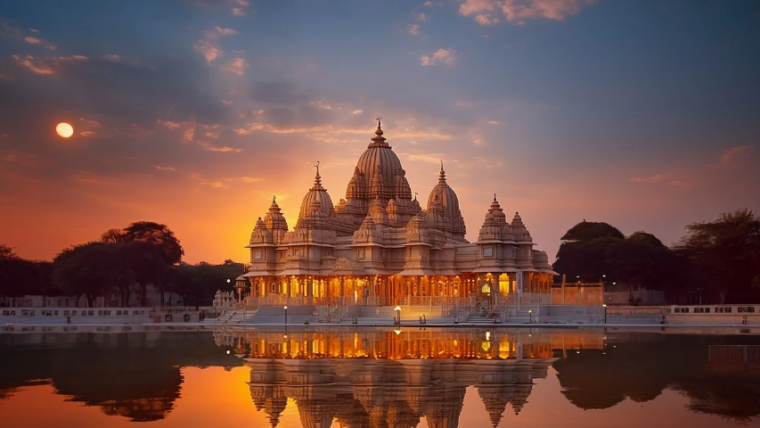In the tapestry of Hindu philosophy, the concept of Dharma stands as a cornerstone, a guiding principle that transcends mere ethical or moral guidelines. Dharma, derived from the Sanskrit root “dhr” meaning to sustain or uphold, encompasses not only one’s duty but also the moral and ethical responsibilities that govern an individual’s life. The importance of Dharma is not confined to a particular time or circumstance; rather, it serves as a timeless compass that directs individuals toward righteous living. Here, we delve into the profound significance of Dharma in shaping character, fostering social harmony, and contributing to the spiritual evolution of an individual.
1. Moral and Ethical Foundation:
- At its core, Dharma provides a moral and ethical foundation for individuals. It outlines the righteous path, emphasizing values such as truth, compassion, righteousness, and integrity. It serves as a moral compass that directs actions toward what is considered virtuous and just.
2. Individual Duty and Responsibility:
- Dharma defines one’s duty and responsibility in various roles — as a student, a parent, a professional, and a member of society. It elucidates the inherent duties that come with each role, guiding individuals on how to conduct themselves in a manner that upholds righteousness.
3. Social Harmony and Order:
- Dharma plays a pivotal role in establishing and maintaining social harmony and order. It prescribes the principles that govern relationships, emphasizing mutual respect, cooperation, and the well-being of the community. In adhering to one’s Dharma, individuals contribute to the overall welfare of society.
4. Balance and Harmony:
- Dharma advocates for balance in life. It encourages individuals to pursue their goals and desires but within the framework of moral and ethical guidelines. This balance contributes to inner harmony, preventing extremes and fostering a sense of equilibrium in the face of life’s challenges.
5. Spiritual Evolution:
- Beyond the realm of the mundane, Dharma is intricately linked to spiritual evolution. It is seen as a path that not only leads to righteous living on a societal level but also acts as a stepping stone toward higher spiritual realization. By aligning with Dharma, individuals tread a path of spiritual growth and self-discovery.
6. Preservation of Order in the Universe:
- In Hindu cosmology, Dharma is considered essential for the preservation of order in the universe. It is perceived as a cosmic principle that sustains the world. When individuals adhere to their Dharma, they contribute to the cosmic order, creating a harmonious balance in the grand tapestry of existence.
7. Guiding Principles in Decision-Making:
- Dharma serves as guiding principles in decision-making. In moments of moral ambiguity or ethical dilemmas, individuals can turn to Dharma for guidance. It provides a framework that assists in making decisions aligned with righteousness and the greater good.
8. Respect for All Life Forms:
- Dharma extends beyond human relationships to include a reverence for all life forms. It underscores the interconnectedness of all beings and encourages a sense of responsibility toward the environment and the diverse forms of life that inhabit it.
9. Upholding Cosmic Harmony:
- Dharma is intricately linked to the idea of cosmic harmony. It posits that when individuals fulfill their Dharma, they contribute to the overall harmony of the cosmos. In this way, personal righteousness is interwoven with the cosmic order.
10. Source of Inner Strength: – Following one’s Dharma is not merely a societal obligation; it becomes a source of inner strength. It provides individuals with a sense of purpose, direction, and resilience in the face of life’s challenges. Dharma becomes a guiding force that sustains individuals in their journey through life.
In conclusion, the importance of Dharma is deeply ingrained in the fabric of Hindu philosophy, offering a comprehensive guide for righteous living. It transcends the individual and extends to the societal and cosmic realms, emphasizing the interconnectedness of all existence. Upholding Dharma is not just a cultural or religious imperative; it is a timeless principle that resonates across boundaries, offering profound insights into the art of virtuous living.
When you’re living in alignment with your dharma, you stop engaging in drama.


